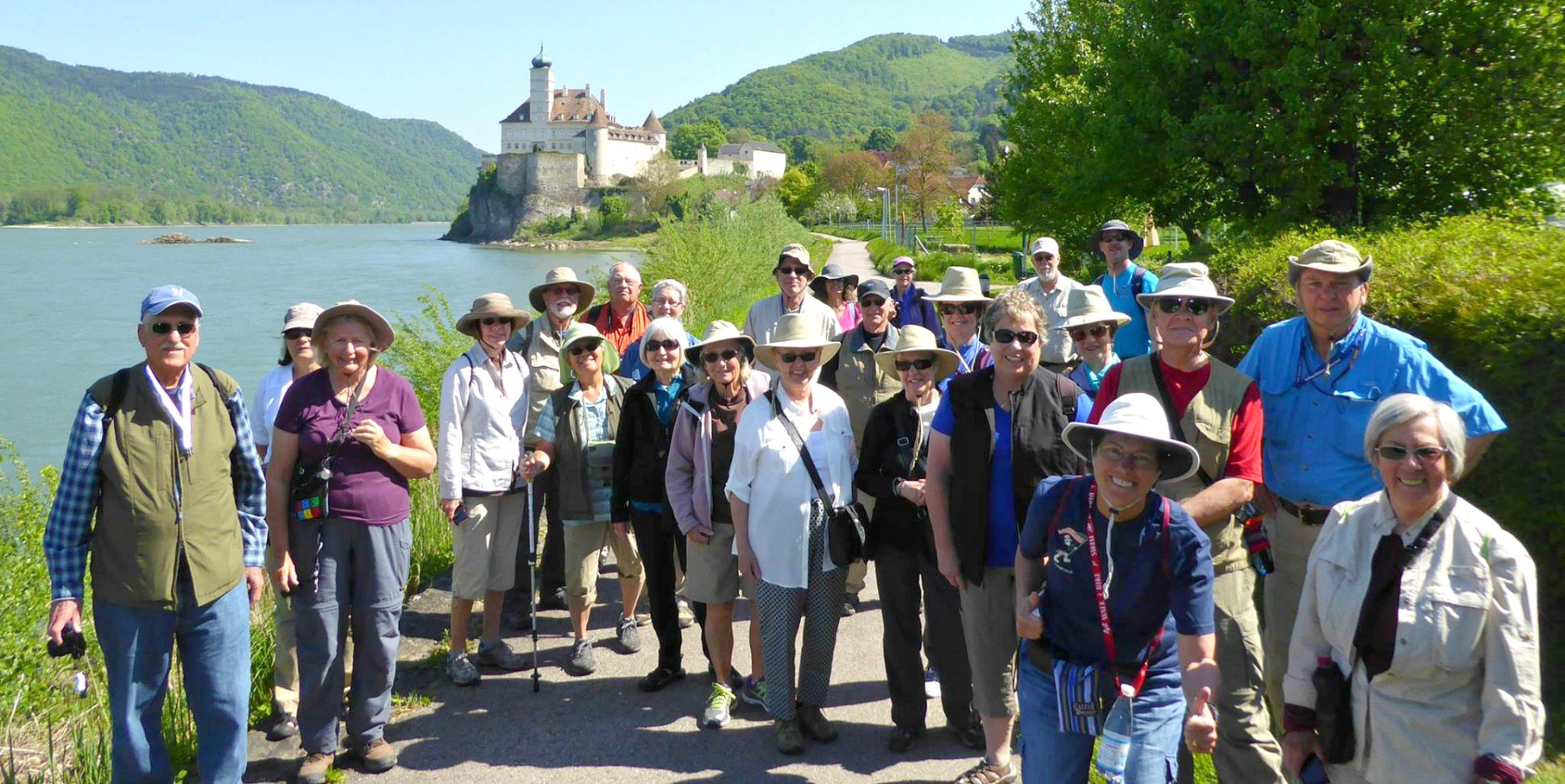Senior Tours to Europe: Discover a world of enriching experiences tailored for mature travelers. From the charming cobblestone streets of Paris to the sun-drenched beaches of the Mediterranean, Europe offers a diverse tapestry of sights, sounds, and cultures perfectly suited for those seeking a fulfilling and comfortable journey. This guide delves into the planning, logistics, and cultural nuances of crafting the perfect European adventure for seniors.
We explore popular destinations, outlining factors such as accessibility, climate, and cultural attractions. Different tour itineraries catering to varying activity levels are detailed, along with considerations for accommodation, health, safety, and budget management. Learn how to navigate cultural sensitivities, overcome language barriers, and ultimately, create an unforgettable European escape.
Health and Safety Considerations: Senior Tours To Europe
Planning a European adventure as a senior traveler requires careful consideration of health and safety. This section Artikels crucial precautions to ensure a smooth and enjoyable trip, minimizing potential risks and maximizing peace of mind. Proactive planning is key to a successful and worry-free journey.
Pre-Trip Medical Consultations and Vaccinations
Before embarking on your European tour, a comprehensive medical consultation is paramount. Discuss your existing health conditions, medications, and any potential health concerns with your physician. This consultation should cover necessary vaccinations based on your itinerary and the current health advisories for your destinations. For example, some regions might require vaccinations against Hepatitis A and B, typhoid, or other diseases.
Your doctor can provide a personalized vaccination schedule and advise on any necessary precautions regarding your existing health conditions. They can also provide information on managing chronic illnesses during travel and recommend appropriate medications to bring along.
Travel Insurance: Comprehensive Coverage is Essential
Securing comprehensive travel insurance is not merely advisable; it’s essential for senior travelers. Policies should cover medical emergencies, including hospitalization, evacuation, and repatriation. Consider policies that include coverage for pre-existing conditions, as these can often be excluded from standard plans. Look for policies with 24/7 emergency assistance services, providing access to medical professionals and support staff who can assist with unexpected situations.
For instance, a policy covering medical evacuation from a remote area would be invaluable in the event of a serious illness or injury. Compare policies from several reputable providers to ensure you find the best coverage at a competitive price.
Emergency Contact Information and Procedures
Establish clear emergency contact information before departure. Share your itinerary with family or friends, including flight details, hotel addresses, and planned excursions. Provide them with the contact information for your travel insurance provider and the local emergency services in each country you’ll be visiting. Learn the local emergency numbers for each country you will visit. For instance, in most European countries, the emergency number is 112.
Do not overlook explore the latest data about fun vacations for adults.
Familiarize yourself with the procedures for contacting your embassy or consulate in case of emergencies. Consider carrying a small card with essential contact information, including your doctor’s details and any relevant medical conditions. This information should be readily accessible in case of an emergency.
Cultural Sensitivity and Etiquette

Navigating the diverse cultural landscapes of Europe requires sensitivity and awareness. Respectful engagement with local communities enhances the travel experience for both visitors and residents. This section provides guidance on cultural etiquette and strategies for effective communication in popular European destinations.Understanding local customs and norms is crucial for a positive and enriching travel experience. Senior travelers, in particular, may benefit from advance preparation to ensure smooth interactions and avoid unintentional offense.
This section will highlight key cultural considerations and practical communication tips for several popular European destinations.
Cultural Etiquette in Popular European Destinations
This section Artikels key cultural etiquette points for several popular European destinations frequently visited by senior tour groups. These are general guidelines, and individual experiences may vary.
- Italy: Greetings are important. A handshake or a “Buongiorno” (good morning) or “Buonasera” (good evening) is customary. Avoid loud conversations in public spaces. Punctuality is appreciated, especially for arranged tours or meetings. Tipping is customary in restaurants (around 10%).
- France: Similar to Italy, greetings are crucial. A handshake or “Bonjour” is expected. Avoid overly familiar behavior. Queuing is essential; cutting in line is frowned upon. Tipping is generally included in the bill, but rounding up or adding a small tip for exceptional service is acceptable.
- Spain: The Spanish are generally warm and welcoming. Greetings such as “Hola” are common. Mealtimes are important social occasions; taking your time is appreciated. Touching is more common than in some other European countries; avoid being overly sensitive to casual physical contact. Tipping is generally not expected in cafes and bars, but rounding up the bill is acceptable in restaurants.
- Germany: Germans are known for their punctuality and efficiency. A firm handshake is the standard greeting. Direct communication is common. Tipping is customary in restaurants (around 10%).
- United Kingdom: British culture is quite formal in some aspects. A polite “hello” or “good morning” is expected. Queuing is essential. Tipping is customary in restaurants and for services like taxi rides (around 10-15%).
Respectful Engagement with Local Communities
Respectful interaction with local communities is paramount. This involves observing local customs, being mindful of noise levels, and demonstrating consideration for the environment. Active listening and showing genuine interest in local culture fosters positive interactions.
“Travel is about the people you meet, not the places you visit.”
Avoiding loud or disruptive behavior in public spaces, respecting local religious sites and traditions, and being mindful of personal space all contribute to positive interactions. Engaging in respectful conversations and demonstrating a genuine interest in local culture further enhances the experience. For example, attempting a few basic phrases in the local language, even if imperfectly spoken, shows respect and willingness to connect.
Overcoming Language Barriers
Language barriers can be a challenge, but several strategies can mitigate this. Carrying a phrasebook or using translation apps on smartphones can aid communication. Learning a few basic phrases in the local language is always appreciated. Non-verbal communication, such as gestures and facial expressions, can also facilitate understanding. In addition, many Europeans, particularly in tourist areas, speak English.
Utilizing visual aids, such as menus with pictures or maps, can also help bridge the communication gap. For example, pointing to items on a menu or using a map to indicate your destination can be effective.
Booking and Planning a Senior Tour
Planning a European adventure as a senior citizen requires careful consideration and preparation. This process, while potentially complex, can be streamlined with the right approach, ensuring a memorable and stress-free trip. Choosing the right tour operator and understanding the necessary documentation are key components of successful trip planning.Choosing a reputable tour operator is the first crucial step. Many companies specialize in senior travel, offering itineraries tailored to the needs and physical capabilities of older travelers.
These tours often feature a slower pace, comfortable accommodations, and accessible transportation.
Selecting a Tour Operator
The selection of a tour operator should be based on factors such as experience with senior travel, positive customer reviews, clear itinerary details, and comprehensive insurance coverage. Compare several operators, examining their itineraries, inclusions, and pricing structures before making a decision. Look for companies with a strong reputation for handling potential health issues or emergencies. Reading independent reviews on travel websites can provide valuable insights into the experiences of past clients.
Securing Travel Documents
Once a tour is selected, securing the necessary travel documents is paramount. This includes obtaining a valid passport, ensuring sufficient visa requirements are met (if applicable), and confirming travel insurance coverage. It is crucial to allow ample time for passport processing, especially if renewals are needed. Travel insurance is particularly important for senior travelers, as it can cover medical emergencies, trip cancellations, and lost luggage.
Policies should be reviewed carefully to understand the extent of coverage provided.
Benefits of Using a Senior Travel Specialist
Utilizing a travel agent specializing in senior travel offers several significant advantages. These agents possess expertise in handling the unique needs of older travelers, from arranging accessible accommodations to providing assistance with mobility issues. They can also offer personalized itineraries tailored to individual preferences and health conditions. Their knowledge of senior-friendly destinations and activities ensures a smoother and more enjoyable travel experience.
Furthermore, they often handle all the logistical aspects of the trip, relieving seniors of the stress associated with planning and booking. This includes managing flights, accommodations, and ground transportation, leaving the traveler to focus on enjoying the trip.
Essential Documents and Preparations
A comprehensive checklist of essential documents and preparations for senior travelers is vital. This checklist should include:
- Valid passport with at least six months validity remaining.
- Visa (if required) – ensure sufficient time for processing.
- Copies of all travel documents (passport, tickets, insurance).
- Comprehensive travel insurance policy details.
- Emergency contact information (family, doctor).
- Medication list and copies of prescriptions.
- Copies of medical cards and any relevant health information.
- Sufficient funds (credit cards, traveler’s checks).
- Copies of itinerary and tour details.
- Packing list tailored to the climate and planned activities.
Thorough preparation minimizes potential complications and allows for a more relaxed and enjoyable travel experience. Remembering to pack comfortable shoes and clothing appropriate for varying weather conditions is also important. Additionally, it’s wise to inform one’s bank and phone provider about the travel plans to avoid any issues with accessing funds or phone service abroad.
Illustrative Examples of Senior-Friendly Tours
Choosing the right tour can make all the difference in a senior’s travel experience. Factors like pace, accessibility, and the level of support offered are crucial for ensuring a comfortable and enjoyable trip. The following examples showcase diverse options catering to specific interests.
A Journey Through History: Exploring the Roman Empire
This meticulously planned tour focuses on the rich history of the Roman Empire, prioritizing comfort and accessibility for senior travelers. The itinerary includes guided visits to iconic sites like the Colosseum and Roman Forum in Rome, the ancient ruins of Pompeii and Herculaneum in Italy, and the breathtaking architecture of Ephesus in Turkey. The pace is leisurely, with ample time for exploration and rest.
Transportation is primarily via comfortable, air-conditioned coaches with restroom facilities. Hotels are carefully selected for their proximity to attractions and accessibility features, such as elevators and ramps. One image depicts a group of seniors engaged in a lively discussion with a knowledgeable tour guide within the Colosseum, the vibrant interaction highlighting the educational experience. Another shows a panoramic view of the Roman Forum, with seniors comfortably seated on benches, soaking in the historical atmosphere.
The tour also includes optional activities like cooking classes featuring traditional Roman cuisine and leisurely evening strolls through charming Italian towns.
Nature’s Embrace: A Scenic Cruise Through the Norwegian Fjords
This tour provides a breathtaking experience of Norway’s stunning natural beauty. The journey begins with a scenic flight to a coastal city, followed by an embarkation onto a luxurious cruise ship designed with senior travelers in mind. The ship features spacious cabins with accessible bathrooms, elevators, and plenty of seating areas for relaxation. The cruise navigates the majestic Norwegian fjords, offering stunning views of towering mountains, cascading waterfalls, and charming villages nestled along the coastline.
One image shows a group of seniors enjoying a scenic boat tour on a calm lake surrounded by snow-capped mountains, the picturesque setting emphasizing the relaxed atmosphere. Another shows seniors enjoying a delicious meal in the ship’s dining room, overlooking a breathtaking fjord landscape. Shore excursions include gentle hikes with breathtaking vistas and opportunities to witness the region’s unique flora and fauna.
The itinerary includes ample time for relaxation and personal exploration.
A Culinary Adventure: Exploring the Wine Regions of Tuscany, Senior tours to europe
This tour caters to senior travelers with a passion for food and wine. The itinerary focuses on the culinary delights and picturesque landscapes of Tuscany, Italy. The tour includes visits to renowned vineyards and wineries, offering guided tours and wine tastings. Cooking classes focusing on traditional Tuscan cuisine are also included, allowing participants to learn the art of preparing regional specialties.
Hotels are selected for their charm, proximity to vineyards, and accessibility features. Transportation is provided via comfortable, air-conditioned coaches. One image depicts a group of seniors participating in a lively cooking class, surrounded by fresh ingredients and the aroma of delicious Tuscan dishes. Another shows seniors enjoying a wine tasting session in a sun-drenched vineyard, with rolling hills and cypress trees in the background.
The pace is relaxed, with ample time for leisurely meals, wine tasting, and exploration of charming Tuscan towns.
Planning a senior tour to Europe requires careful consideration, but the rewards are immeasurable. By understanding the key elements—from choosing the right destination and tour type to prioritizing health and safety—seniors can embark on a journey filled with wonder, discovery, and lasting memories. With meticulous planning and the right resources, an unforgettable European adventure awaits.


